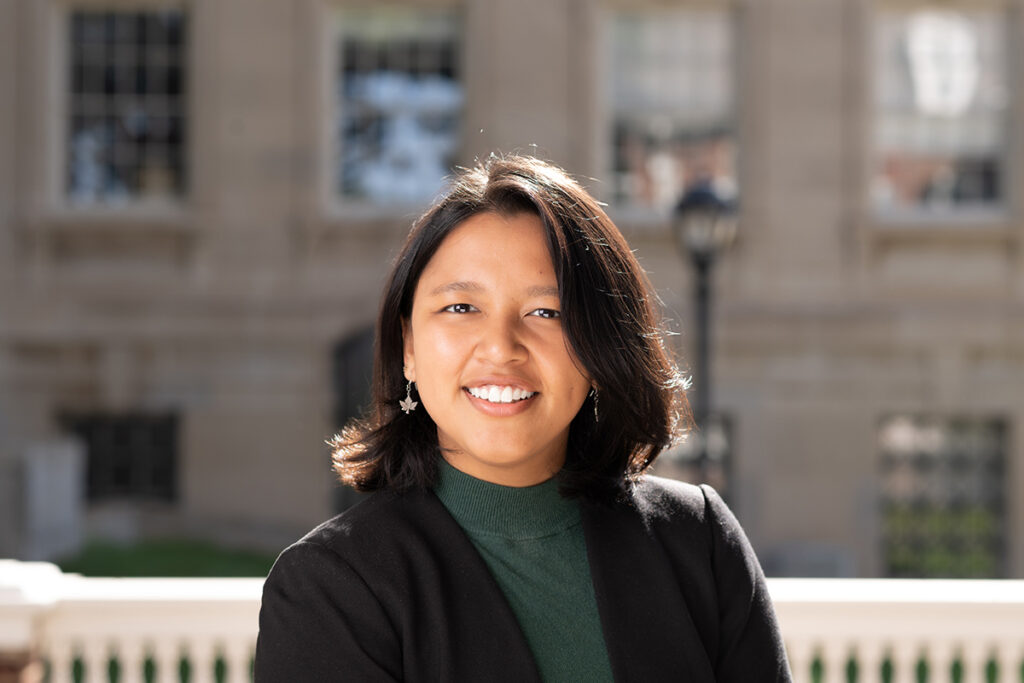Learn more about Anukriti Shrestha, assistant professor of chemical and biomolecular engineering

Anukriti Shrestha | Photo by Adam Atkinson
What I study and why: Throughout my academic and professional journey, I have developed a deep appreciation for the role of computational methods in advancing chemical engineering. As a computational catalysis researcher, I use computational modeling, data analysis, and experimental validation to explore catalytic stability. By simulating and optimizing catalysts through quantum calculations, computational catalysis contributes to the design of more efficient, cost-effective, and environmentally friendly catalysts for various applications.
Quantum calculations, while informative, are computationally expensive. Data science and machine learning tools help mitigate these costs by leveraging existing quantum data and materials databases, making quantum calculations more accessible and enabling broader exploration of materials. My research focuses on using density functional theory (DFT) to assess catalytic materials’ thermodynamic stability, and employing data science and machine learning to predict material properties for high-throughput materials discovery.
Metal oxides are widely used as catalyst supports that can stabilize the catalyst and increase its performance. However, catalyst synthesis can generate oxygen vacancies, modifying surface properties and impacting catalyst stability and reactivity. These vacancies can also significantly impact the phase stability and electronic structure of the support. I am interested in getting a deeper understanding of oxygen vacancies’ energetics using molecular modeling and data-driven insights, starting with titania and extending to other metal oxide surfaces.
This fall, I’m teaching: CM 261: Introduction to Numerical Computing for Engineers and CHE 312: Experimental Design I.
What students can expect from me: My goal in every class I teach is to make the material engaging and relevant to my students, so they can see the practical applications of what they are learning. I aspire to have the same positive impact on my students as my own professors had on me and inspire them to develop a love for learning and a curious mindset. My teaching philosophy focuses on inclusive course design, understanding individual student needs, and a progress-oriented approach. By emphasizing various problem-solving approaches, I help students find methods that resonate with their individual styles. Beyond academics, I strive to connect with my students on a personal level, supporting their diverse endeavors and showing my commitment to their growth and development outside the classroom.
Getting to know me: I love reading, trying my hand at art projects like paint by numbers, and going for walks. I also enjoy taking care of my pandemic plant collection, doing puzzles, and playing board games!
Continue reading to meet more of Lafayette’s newest faculty members.
